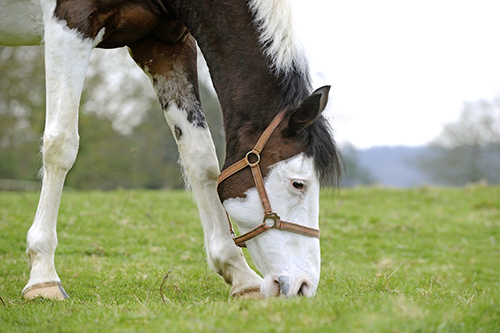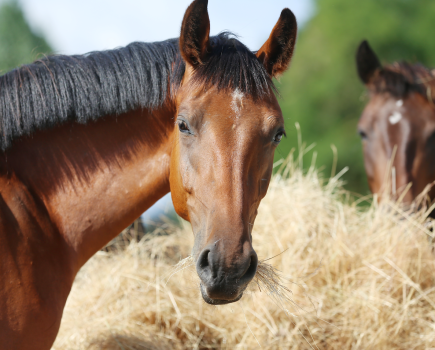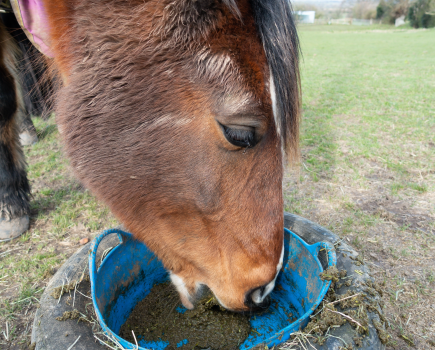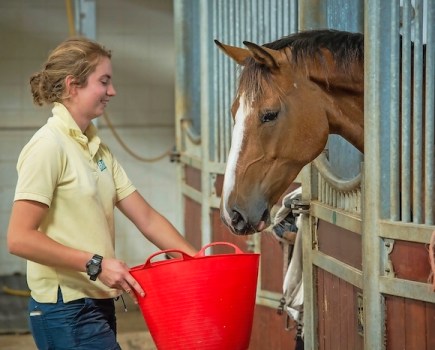If you’re struggling to know how much to feed your horse, fear not! We’ve got the answers to some very common questions on that very subject right here.
Will grass provide your horse with everything he needs?
Unfortunately not! Grass may provide sufficient calories and even protein for horses at rest or in light work a large study has shown that UK grazing will not meet their mineral requirements. For example, grass only provides around half the quantity of zinc a horse needs every day and this can result in poor hoof health. Horses that maintain weight well on grazing alone don’t need lots of concentrate feed but they still need extra vitamins and minerals. To make sure your horse’s diet is balanced, consider feeding a broad spectrum vitamin and mineral supplement.
How much hay or haylage should you feed?
Forage is an essential part of all horses and pony diets. Horses have evolved as trickle-feeders and feeding insufficient forage can result in problems such as stereotypic behaviours, gastric ulcers and/ or colic. Horses will eat between 2-2.5% of their bodyweight as dry forage per day. Depending on how much work you do with your horse some forage may be replaced by concentrate feed. However, if your horse needs to lose weight it may be necessary to restrict forage intake. We recommend a restriction of no less than 1.5% of body weight unless under veterinary supervision.
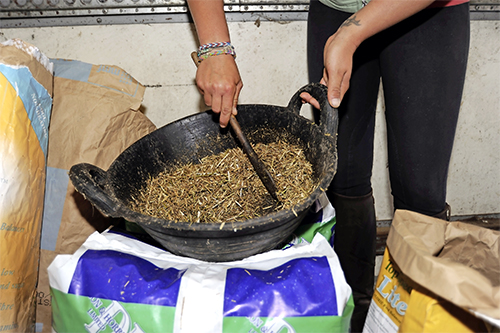 How much concentrate feed is safe to feed in one meal?
How much concentrate feed is safe to feed in one meal?
Your horse’s stomach is very small in comparison to the rest of the digestive system. As a result feeding large concentrate meals can increase the risk of problems such as colic. You should aim to feed no more than 500g/100 bodyweight per meal. For example a 500kg horse should have a maximum of 2.5kg of food per meal (this includes concentrates, chaff, sugar beet etc.).
Top meal size tip!
Aiming for smaller feeds more often, is much better for your horse’s digestive system and feeding a balancer which includes a probiotic can help the digestibility of fibre, meaning your horse will get twice as much out of the fibre in his diet. This will help him put on weight and condition without having to over-feed him.

